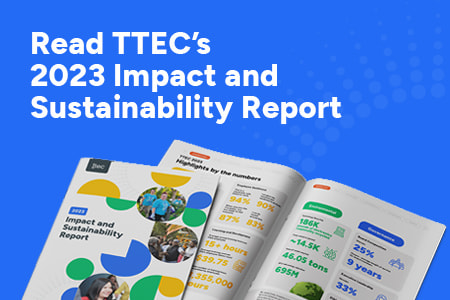How ironic that even as new technologies drive everything in business to become smaller, faster, and cheaper, the regulatory apparatus of most governments is becoming bigger, slower, and more expensive. Maybe the time has come to drag governments and their policies into the 21st century with the rest of us, and to use the technology to help stabilize and manage the world economy.
There will always be asset bubbles, such as the Internet boom and the recent real estate and financial services boom. Bubbles and crashes will continue to happen, because even though people are rational for the most part, they still make decisions based partly on what they see others doing. This creates a cascading effect in our markets that can never be fully avoided, and will always pose a risk of overbought or oversold asset values. Face it: The market is inherently unpredictable. If anyone really could predict the market, then their predictions would quickly become the object of all sorts of financial arbitrage plays, overturning the predictions themselves in the process.
There are, however, at least three things we can and should do now to make our markets more efficient, and to shield more important parts of the world economy from the kind of damage that might generate “systemic risk” in the future.
1. Use technology to help investors understand and evaluate risk better.
The three Nationally Recognized Statistical Rating Organizations—Moody’s, Standard & Poor’s, and Fitch—all missed the high-risk mortgage bubble entirely, and none of them knew much about how to rate some of the more complex derivatives, either. But there are tens of thousands of small businesses that transact billions in sales online without ever meeting face to face with their customers, because buyers and sellers rate each other’s performance. There are many excellent peer-to-peer rating systems online, from eBay and Amazon to Epinions and YouTube.
It turns out that trust thrives online, even in anonymity, and violators are quickly outed. The result is that an individual can buy from a completely unknown seller online, with reasonable confidence that performance will be as represented, because the seller’s reputation after dealing with other buyers is right there for all to see. So, why not structure a similar rating system for securities and derivatives? A financial securities rating system would need to act somewhat like a market itself, in that reviewers whose ratings proved to be the most accurate would earn more. That way, the ratings opportunities themselves would attract and reward the more prescient investors.
Naturally, as new financial instruments are created that require ratings in order to be marketable, the ratings themselves would have to wait a bit for investor experience to catch up. But, in retrospect, that doesn’t appear to be too bad an idea, either. A market-driven ratings system won’t be perfect, because markets aren’t perfect, but it would inevitably be better than the current system for the very simple reason that the best analysts would be able to make more money, and the worst analysts would soon join the unemployment queue.
2. Use technology to eliminate insider trading abuses.
Here’s a really radical idea: Let’s allow insiders to trade on their information as long as all their trades are reported online, in real time. Think about it. We prevent insiders from profiting from their information today on the theory that they have access to information no one else has—and they do. But if their trades themselves became available immediately to other market participants, then the advantage that comes from inside information would evaporate almost immediately. Twitter and the BlackBerry would ensure that no insider could ever make much in the minute or two before others pile on. Influential insiders who “game” a stock more than once or twice would be quickly exposed.
Such a system would promote more efficient market information and transparency, reducing much of the paperwork burden now imposed on public companies. Policing the trading system to authenticate every participant’s identity will be much easier and more cost-efficient than policing trades after the fact to discover hidden relationships. Inside information and important strategic plans at a company could still be kept secret, but the market value of that information would benefit everyone. In effect, there would be no more insider trading. There would just be trading.
3. Change financial reporting to stop rampant short-termism.
One of the most difficult problems afflicting business is that publicly traded companies are pressured to disregard the long-term consequences of making their short-term numbers. This same rampant short-termism finds its inevitable way into compensation schemes that pay extraordinarily large commissions and bonuses for sales or transactions that often have costly or poorly understood long-term effects.
If there is one overarching cause behind the current financial crisis, it is short-termism, which has dominated not just the financial services industry but most other industries, as well. Traditional accounting principles are adequate when it comes to reconciling current-period events affecting the value of tangible, “dirt world” assets, like inventories, lease holdings, or equipment.
For 21st-century businesses, however, these assets are less and less relevant for creating value, compared to such intangible assets as brand preference and customer lifetime values. The long-term values of things like customer loyalty, brand equity, and reputation rarely make it into a financial statement, but these are precisely the highly valuable assets most likely damaged when management’s focus on current-period numbers to the exclusion of long-term costs or risks. Moreover, because customers are increasingly connected with each other, violating one customer’s trust or losing one customer’s confidence can now have ramifications far beyond any individual customer’s patronage.
The traditional argument, of course, is that intangible assets like these are too economically squishy to assess their financial value accurately. But this is old-fashioned, 20th-century thinking. With the kind of computer analysis and statistical modeling available today, the rate of change of a customer’s projected value over his lifetime of patronage, for instance, can be estimated and managed at almost any company in any industry, from services to manufacturing, and from consumer marketing firms to business-to-business vendors. Self-serving or slanted analyses can be minimized by simply requiring audits of the analytical tools and methods used, rather than the accounting processes followed.
A sign of the future: The government of Finland has promised its citizens 150 megabytes-per-second of Internet speed for every residence and business in the country by 2015. That’s the information-world equivalent of raising the speed limit to 500 miles an hour. Welcome to a world where everyone is online with everybody instantly and constantly, where self-organization makes secrets hard to keep, and dirty secrets even harder to keep. Time for the government to keep up.






